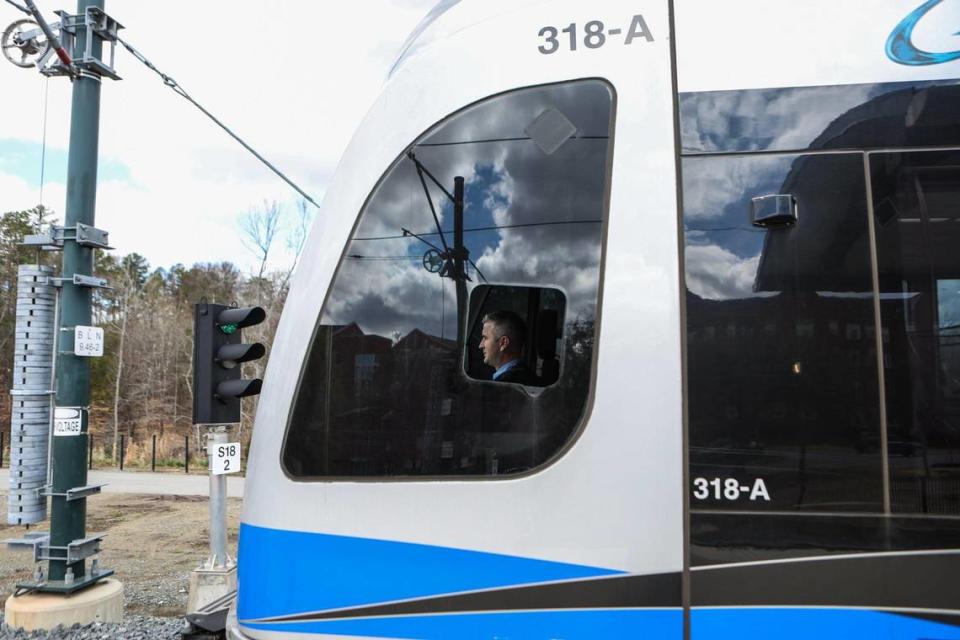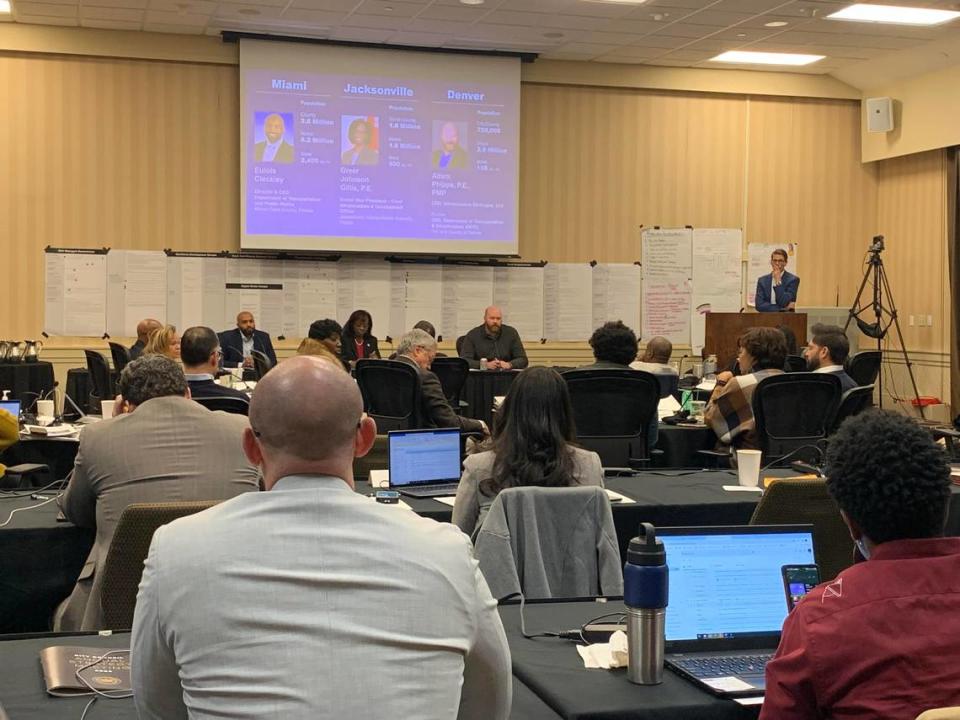‘Need to reboot’: Charlotte City Council confronts hurdles to transit plan overhaul
There are still plenty of questions to work through before Charlotte can make progress on its “transformational” transportation plan, City Council members agreed as their annual retreat came to a close Wednesday.
Much of the three-day event, held in Winston-Salem, focused on transportation. Council members heard an update from city staff on Charlotte’s mobility plan, participated in a panel with transit officials from other cities and discussed next steps among themselves.
Little was decided. But there was consensus that more time-consuming work needs to be done to determine what should be prioritized in the plan, how to get other levels of government and business on board, and how to pay for it.
“We ought to stop thinking this (transportation plan) is a sprint to 2024, 2025,” at-large Council member James Mitchell said. “…We just need to reboot, get a real strategy on all fronts.”

Needing alignment for transportation plans
District 7 Council member Ed Driggs, who chairs the council’s transportation committee, said he thinks city leaders “are way ahead of ourselves” when it comes to transportation planning.
“We don’t have the alignment with other communities. We don’t have the alignment with the legislature. So I would like to step back and take a big-picture look and not kind of stress too much about the finer points of the plan,” the south Charlotte Republican said.
Driggs added that he doesn’t think the city is “putting enough resources” into transportation planning. Moving forward, the city needs to bring on more folks with expertise, according to Driggs.
“Frankly all of us, me included for sure, are in this space dilettantes,” he said. “I just hope that we will put some resources to work here, invest in this thing and scale it up. It’s not gonna happen the way we’re doing it.”
How will Charlotte pay for ‘transformational’ plan?
Another hurdle to expanding transit discussed during the retreat was how to fund the work.
There’s agreement among the council that “we absolutely need a transformational investment in transportation,” District 6 Council member Tariq Bokhari said. But it remains unclear after the week’s conversations where the money will come from.
At their 2022 retreat, council members discussed the potential of a penny sales tax increase to subsidize rail projects and qualify the city for federal funding matches. That would require a ballot measure, and getting one on the ballot requires the blessing of the General Assembly.

There’s not enough time to get that done ahead of the 2024 election because of the legislature’s short spring session, City Manager Marcus Jones told the council Tuesday. Even if there were more time, Republican leaders in Raleigh have previously pushed back on the possibility of such a referendum.
It’ll take changes in the plan itself to get more support from the GOP-led legislature, according to Bokhari, one of just two City Council Republicans.
That could include abandoning the proposed Silver Line, a planned 29-mile, 30 station light rail line that would run from the Belmont through Center City Charlotte and into Union County, Bokhari said. Charlotte could also take more of a “roads first” approach, he said, noting that wouldn’t mean giving nothing to public transit.
“There’s no expert that can be hired, there’s no marketing budget that can be sent upon it and there’s no slight tweaks around the edges that (Republican legislators will) be tricked into liking the same old plan as before,” Bokhari said.
If a sales tax increase isn’t possible, a property tax hike could be necessary to pay for transportation needs. Either way, the council needs to act quickly if they want to take advantage of possible additional federal dollars, Mayor Vi Lyles said.
“We really have to do something,” she said. “Because otherwise, we could do a half cent (tax increase), a penny, we could do a nickel, and we wouldn’t have the federal money to help us finish it.”
More support sought for transportation plan
Tackling Charlotte’s transportation needs can’t be done by City Council alone, members agreed.
In addition to overcoming funding obstacles tied to the General Assembly, the council also has to navigate the regional structure of public transportation in the area. While the council has some authority over the Charlotte Area Transit System, Charlotte is just one part of the Metropolitan Transit Commission which also governs CATS.
The MTC also includes Mecklenburg County and the towns of Davidson, Huntersville, Cornelius, Pineville, Matthews and Mint Hill. In 2023, some members expressed discontent with the city of Charlotte, saying it wasn’t paying enough attention to the commission’s recommendations.
More “regional buy-in” will be needed to make progress, Council member Malcolm Graham said. “We’re just running in place, right? We’re not going forward. We’re not going back,” he said. “… How do we get people in the region to have one vision for what we’re trying to do?”
Still, Driggs said it will be important for the council to also maintain some authority over its own plans.
Lyles said that progress on the proposed Red Line — a 25-mile commuter rail line that would connect uptown to surrounding towns and which had long been held up by a lack of access to certain train tracks — and changes in leadership in some Mecklenburg towns have potentially opened the door to new regional discussions.
Lyles added that everyone on council will need to leverage their relationships with state and federal leaders to get support and funding. “Some of us can go to Raleigh … Others of us can go to the White House,” she said.
More work needs to be done to involve Charlotte’s business community too, multiple members said.
What’s next for transit in Charlotte?
City council members concluded their discussion Wednesday with an agreement to continue their conversation in February and beyond. But with the time needed to address all of the issues it could be a while before progress is made.
“We’re talking a marathon here,” Graham said.
Want more coverage of Charlotte-area government and politics? Subscribe here for free to the Observer’s weekly CLT Politics newsletter and never miss a story

